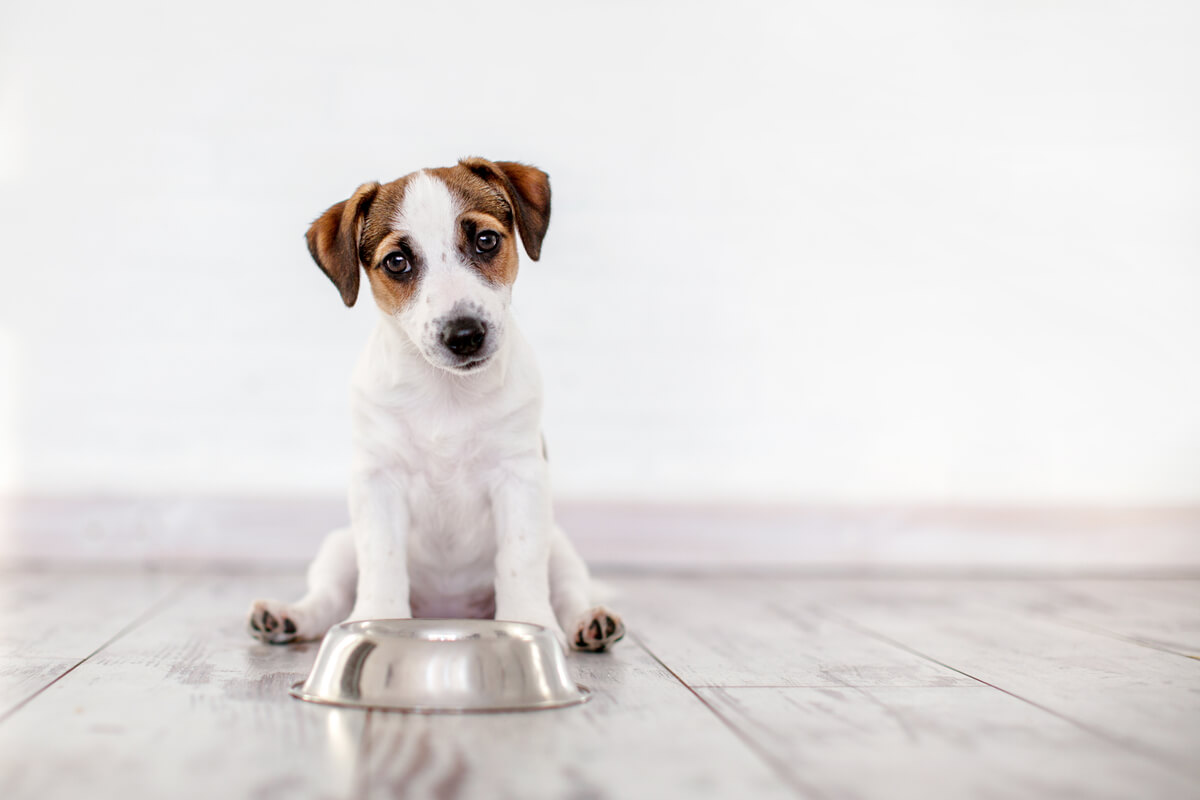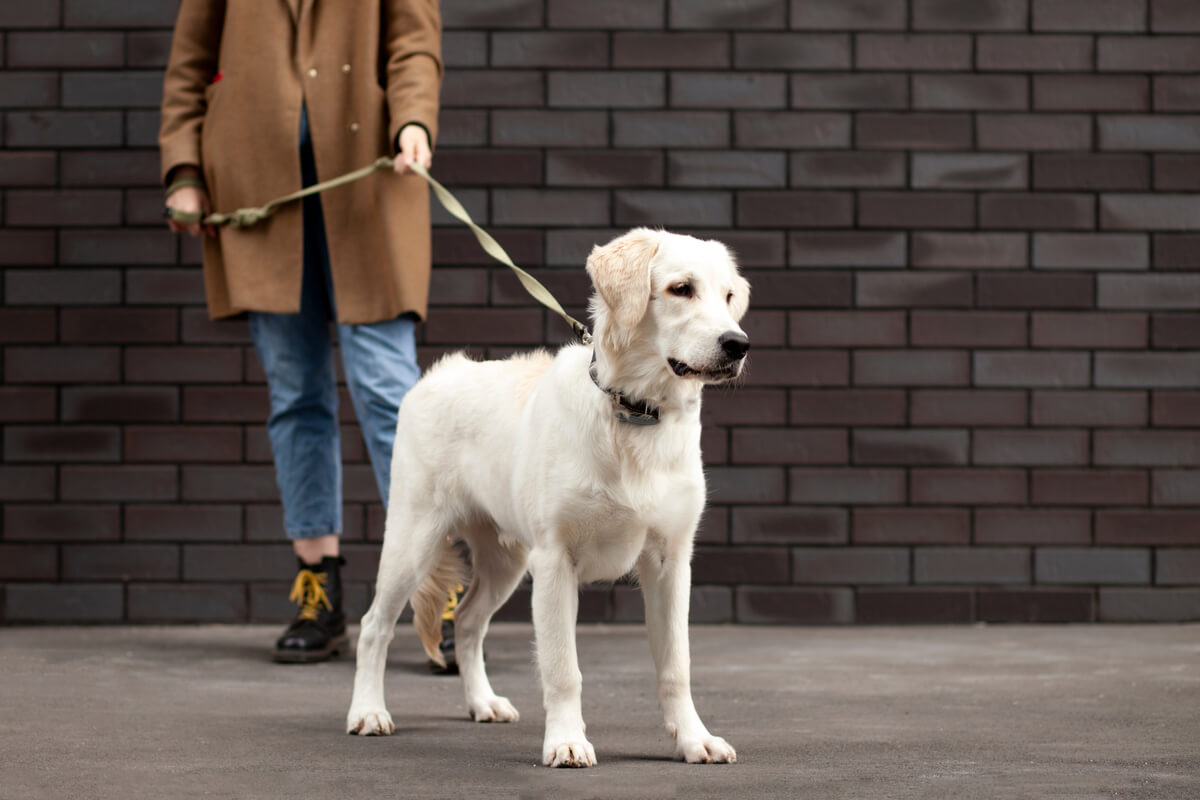5 Things You Shouldn't Do With Your Dog

Dogs are, without a doubt, the animals that offer the most love without asking for anything in return. All you have to do is get home and you’re greeted with real excitement. However, in return, you should give them the respect, care, affection, and love they deserve. That’s why it’s important that, in addition to stroking it, you seek to guarantee the health, food and general well-being of the dog. Learn the things you shouldn’t do with your dog in this article!
In this way, you’ll guarantee its quality of life and avoid aggressive or apathetic behaviors on the part of the animal. The proper way to care for a dog determines the relationship you’ll have with your pet.
Animals have 5 freedoms
The freedom of living beings isn’t an ethereal concept. These are included in the Declaration of Animal Rights, created by the Council for the Welfare of Production Animals, in 1979. These are commonly known as the “Five Freedoms”:
- Freedom from thirst, hunger, and malnutrition: All animals have the right to access water and adequate food.
- Freedom from physical or thermal discomfort: Trying to ensure a suitable environment, where the animals can live well.
- Freedom from pain, injury, or illness: Animals have the right to be treated appropriately, especially when they’re sick or injured.
- Freedom to express their own patterns of behavior: Animals must be able to express their freedom naturally in their environment, with their survival habits and customs.
- Freedom from fear and anguish: Animals have the right not to be subjected to conditions that lead them to experience physical and mental suffering.
Taking into account these rights -rules that apply, for obvious reasons, to domestic dogs – you need to learn about certain things that you shouldn’t do with your dog. Don’t miss them!

What you SHOULDN’T do to your dog
1. Scold the dog hours after being naughty
Aggressive and unsubstantiated scolding is one of those things you shouldn’t do with your dog. If you scold the dog hours after it’s done something wrong, it becomes an unsubstantiated wake-up call, and at the same time, an aggressive attitude on the part of the owners. This causes stress, fear, and anxiety in the animal.
Also, you should keep in mind that many strange behavior patterns in dogs arise from the physical and emotional abuse that they have experienced in their lives. Therefore, if you need to tell your dog off, you should do it at the exact time of the mischief and with love. It’s all about attending to the reason for their mischief and, in this way, instructing the dog not to repeat the same harmful action.
2. Abandon or lock the dog up
An abandoned dog is a sad scene for many people and an unworthy form of suffering for any dog. This circumstance is experienced almost every day all over the world. You only need to visit a dog shelter to see the magnitude of the situation.
Adopting a pet is a way of minimizing the abandonment suffered by many dogs and a noble way of enhancing their quality of life.
Similarly, one of the things you shouldn’t do with your dog is to lock them in cages or in a room. Dogs are noble and sensitive animals that require space to develop their canine intelligence.
3. Punish the dog physically
It is already proven that violence only generates more violence. Furthermore, it is counterproductive to the learning process of any species on the planet. As studies indicate, pain in an animal involves anger and aggressiveness on its part.
Yelling, hitting, and excessive punishment are forms of emotional humiliation for any dog. The only thing that you achieve with physical and psychological violence is to encourage negative behavior in the dog.
A dog filled with fear can turn into a violent animal, as it’ll always act according to its survival instinct, and will assume a defensive posture with any other animal and with people. In contrast, stimulating the emotional and cognitive capacities of the dog leads them to strengthen their nobler side.
4. Change the way the dog is
One of the things you shouldn’t do with your dog is to try to humanize its animalistic qualities. The reasons to avoid it are the following:
- If you humanize it, you forget that the dog is an animal and, in this way, you unconsciously demand human behaviors from it, as if it were a baby.
- The dog suffers because it won’t be able to express itself naturally and freely.
- You won’t be respecting the needs of its body and animal intelligence.
It’s one thing to pamper the pet with lots of care and affection and it’s quite another to think the dog is a human being, and, therefore, to expect human reactions from the canine. Remember that wanting is not the same as dominating.
5. Deprive it of its social life
When a dog is deprived of socializing with other animals and with people, there’s medium-term damage to its emotional, social, and cognitive capacities. Consequently, the dog loses the sense of its natural surroundings, becoming a nervous animal – and in many cases aggressive.

Training is the key
If you want to avoid these things, proper training will always be the most humane way to ensure animal welfare. If you cover its basic needs and allow it to carry out the activities that it needs to as a dog, then your pet will be a wonderful companion for you for many years.
All cited sources were thoroughly reviewed by our team to ensure their quality, reliability, currency, and validity. The bibliography of this article was considered reliable and of academic or scientific accuracy.
Conozca las cinco libertades de los animales, Certifiedhumanelatino. Recogido a 15 de mayo en https://certifiedhumanelatino.org/conozca-las-cinco-libertades-los-animales/
Un error humanizar a nuestras mascotas, Fundacionunam. Recogido a 15 de mayo en https://www.fundacionunam.org.mx/unam-al-dia/un-error-humanizar-a-nuestras-mascotas-unam/
Maltrato y crueldad en animales, Colvema. Recogido a 15 de mayo en http://www.colvema.org/PDF/Maltrato.pdf
This text is provided for informational purposes only and does not replace consultation with a professional. If in doubt, consult your specialist.